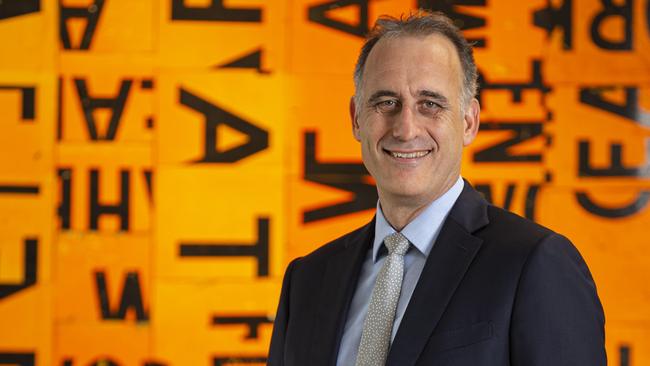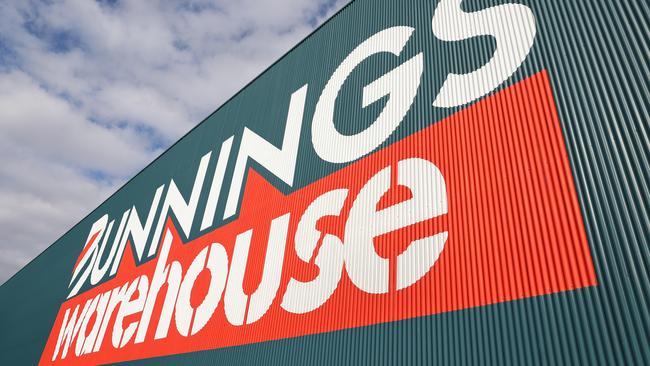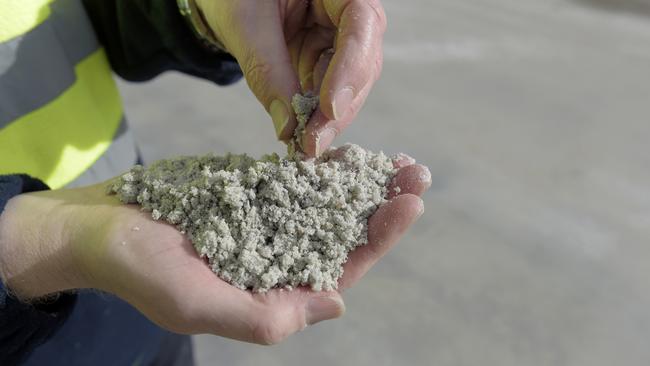
From Bunnings to Kmart and Officeworks, Scott’s Wesfarmers’ is the best barometer of middle Australia and in recent months his customers have taken a more cautious footing.
Shoppers are still spending in Scott’s stores but at more subdued levels as higher interest rates really started to bite through to June. There have been similar sales trends across his stores om the first few weeks of the financial year which is consistent with the broader retail market.

Scott says it’s still been a good start to the year although “we are expecting things to get a bit tougher”. While there is a change in the retail mood following the post-Covid-19 boom, the fundamentals remain sound for Australia, he says. Unemployment is holding near record lows, the cash rate holding steady for now and population growth backing broader demand.
Scott has been pushing his retail brands to heavily lean into the cost-of-living challenge. Names like Bunnings, Kmart and Target have strong value credentials, day-to-day products and unashamedly low-cost models. This he believes is helping them to win market share from retail rivals in a fiercely competitive space.
“This is a moment in time where the value credentials of our retail businesses should really shine through,” he tells The Weekend Australian.
Gravity
Even so, gravity is catching up. Persistent growth from energy, to wages and staff costs (up 8 per cent) while a gas spike for chemicals are all delivering headwinds. Scott points to investments in digital and other systems to drive more savings and sweat his supply chain harder. The outcome of these behind-the-scenes investments will be more noticeable in the coming six months as the economy continues to cool.
However one area that is fast-testing Wesfarmers’ reputation for patience is the Catch e-commerce business that has done nothing but generate hundreds of millions in losses after Wesfarmers paid $230m for it in 2019. Scott is clearly disappointed with how the online department store is performing after it lost a third of sales in the past year.
Some of this was deliberate with Catch walking away from unprofitable lines, but a major overhaul including job cuts and repositioning is well underway. Catch lost $163m last financial year, including restructuring costs, and this is on the back of $88m loss a year earlier. Losses are expected this coming year, although at a slower rate.
Scott says Catch remains important inside Wesfarmers for the value it has delivered to other brands from Kmart, Target and Bunnings for their own e-commerce transition which have gone from “strength to strength” and are now running at around $1.4bn annually.
Scott says it’s a tough environment to have a pure e-commerce retailer. Catch too has been driving younger shoppers into the Wesfarmers’ OnePass rewards program. This program is Wesfarmers big customer data play and loyalty scheme when fully up and running will work across all of the retailer’s flagship brands.
Lithium bet
Scott likes to point to the strength of the Wesfarmers model that swims against the current global tide where companies are increasingly stripping right back to focus on their “core”.
The volumes of cash being generated by Bunnings has allowed Wesfarmers to make significant bets on lithium and health through the Priceline chemist chain and then from there move into adjacent lines, all while boosting returns for investors.
The two areas might be a world away from discount retailing or selling hammers and nails but Scott sees underlying themes of electrification and demand for lithium on big batteries while the Intergenerational Report issued by treasurer Jim Chalmers earlier this week outlined the challenges of Australia’s ageing population.
With the report highlighting growing pressure on the Commonwealth Budget and stalling productivity, Scott says this shows how important a business like Wesfarmers is to step up and face the challenges coming for Australia.

He said this ranges from running an efficient business to keep retail prices as low as possible for consumers while an investment in Priceline and its adjacent businesses is all about trying to make healthcare more affordable and accessible. The move into health means Wesfarmers today is generating as much revenue as it did in 2018 when it owned Coles supermarkets.
“We also have both the challenges and opportunities around decarbonisation and the growth in new industries like critical minerals. The investment in lithium should hopefully support our shareholders and the economy going forward,” he says.
Lithium too is well timed for Wesfarmers. The first earnings are expected from its Mt Holland joint venture in Western Australia, with construction of the concentrator now finished. Fears about the Chinese economy have caused spodumene spot prices to fall from December highs, although Wesfarmers says sales are contracted to top-tier battery makers.
Mt Holland will still require heavy capital investment through ramp-up although the bulk of the spending is now behind it. Wesfarmers is set to shop 50,000 tonnes of spodumene from its ALM venture next calendar year, with higher margin refined lithium still a few years off. Lithium is an entirely new income stream that helps offset some of the lower expected earnings from the fertilisers business as gas prices spike. This investment shows the Wesfarmers model in action, Scott says. By using “patient and disciplined” allocation of capital he can keep building his portfolio of businesses growing.
johnstone@theaustralian.com.au




For Wesfarmers boss Rob Scott, the first delivery of cash from lithium sales early next year will come just in time as the machinery of his retail to industrial empire starts to slow while the economy shifts down a gear.